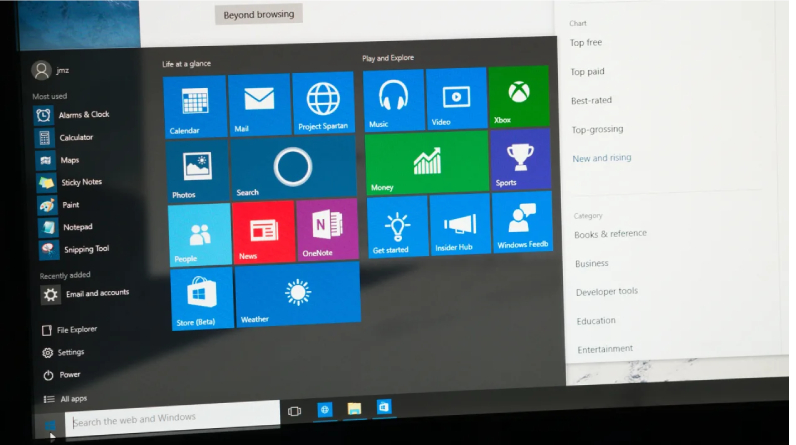Here are 4 suggestions to improve beginning processes and save the business time and money.
entrepreneurs in office today
Entrepreneurs that are independent, dedicated, and resourceful abound in startups. But there is a secret danger.
1. Focuson what needs to get done first — Don’t interrupt others and keep in mind your wheelhouse
Gaining a profit for the company is crucial because startups typically have high costs and little revenue at first. Employees must develop the good or service, sell it, and scale it up in order to do this. Thus, the most important and scarcest resource available to startups is the ability for each employee to concentrate on their particular task. Time is money, but for a startup that hasn’t yet reached break-even, it’s even more crucial.
Contrarily, entrepreneurs place a high importance on hiring team players with a variety of skill sets—the Swiss Army Knife of employees—who are ready and able to step in whenever necessary. However, on occasion, this degenerates into the business equivalent of a kindergarten soccer match. The entire pack congregates around a single ball, squandering energy and making moving difficult. Be a helpful teammate, yet keep in mind your own qualities. Inquire about the mission-critical jobs that fall squarely within your expertise. Maintain a constant concentration on those tasks in order to make progress.
Portrait of a young, attractive Asian businessman who is happy and anticipating new developments.
We must acknowledge it in order to protect our own attention and others’ attention. [+] GETTY
Make “Protect our own (attention) and preserve others'” your motto. Don’t fall for the myth that culture is created through continual interaction (interruption). Tell everyone in the company that paying attention is more important than feeling like something is urgent.
Focused attention is the catalyst for productivity, innovation, and progress, while practically everything else serves as an impediment.
2. Use templates rather than starting from scratch
Ronen Koehler, a former Israeli Navy Colonel and growth adviser, claimed that the largest deterrent for emerging businesses is their tendency to feel the need to build everything from scratch. Everything on a submarine is organised and exact, including the systems, practises, orders, and reactions. People can make crucial judgements and reserve their cognitive resources for the unknown by relegating certain behaviours to habit.
By using templates for everything from resumes and presentations to the recruiting process for jobs, you may put Koehler’s advice into practise. Instead of coming up with your own interview questions, look online for examples that will assist you assess applicants for particular roles. Employee handbooks, best practises in HR, and even proposal structure are all covered in an abundance of resources.
Additional resources exist for your strategic programming. Start by utilising this Entrepreneur Oprating system. Grab what’s available and adapt it to your company’s objectives and ideals. Utilize centrally stored templates. Eliminate work by responding to future demands with the previous response to like requests.
Also Read :Legendary New York designer Willy Chavarria
3. Another conference that ought to have been a Loom video; stay away from the oversupply of meetings
Elon Musk’s leaked email about meetings has drawn criticism, but it mainly confirms what specialists in attention and workplace culture have always said. All types of meetings—frequent, lengthy, and excessive—are detrimental to productivity.
It is essential to have strict meeting procedures. Your startup shouldn’t use meetings as its main means of communicating updates, tracking progress, completing tasks, or making decisions. Do not rely on your ego or being “in the room” to have impact. Most people are too important to sit at the table (and waste their time). base impact on outcomes.
Because there are no established or alternate methods to give visibility and information, unneeded meetings frequently take place. Choose the best IT tools for your company, make a commitment to using them, then use them.

A female startup CEO records a video announcement while waving at the computer.
A excellent meeting substitute are videos. To make a speech or to… [+] record your face and screen. The dashboards on GETTY Notion, Clickup, and Monday.com are excellent for monitoring project progress. Making an announcement or providing an update to someone on their own schedule without having to schedule a meeting is easy using Loom videos. Additional effectiveness: you can rewind the video to get more information as needed.
Establish a non-urgent channel for people you talk to frequently. Whatsapp audio messages could be used to communicate a shared agenda or a concept that doesn’t require a prompt response.
Make sure meetings are as productive as possible when they are required. The Focuswise Meeting Guide has further suggestions for better meetings.
4. Who is in charge ? — Steer clear of these decision-making obstacles.
Everyone believes they should be involved in every decision, creating a bottleneck.
Startups often have fewer employees than larger, more established businesses. While being lean is effective for overhead, it forces everyone to wear several different hats. But not everyone ought to don every hat.
Startups require a few individuals who can step in and fill any sudden gaps. But if everyone plays every part and makes every choice, there is significant waste. Use these free Roles and Responsibilities templates from Focuswise to explain organisational structure, and when necessary, generously use independent contractors or freelancers for temporary assignments.







